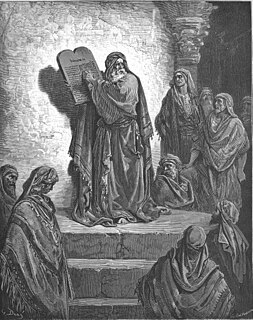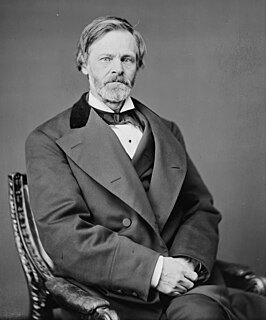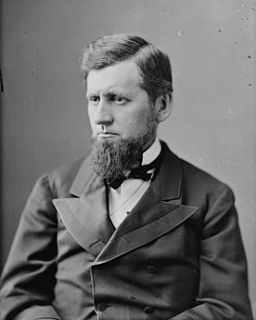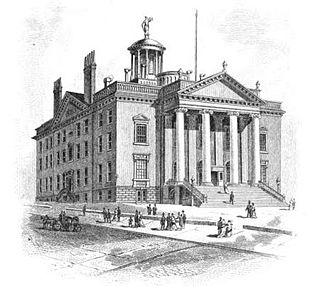
The Book of Ezra is a book of the Hebrew Bible; which formerly included the Book of Nehemiah in a single book, commonly distinguished in scholarship as Ezra–Nehemiah. The two became separated with the first printed rabbinic bibles of the early 16th century, following late medieval Latin Christian tradition. Its subject is the Return to Zion following the close of the Babylonian captivity, and it is divided into two parts, the first telling the story of the first return of exiles in the first year of Cyrus the Great (538 BC) and the completion and dedication of the new Temple in Jerusalem in the sixth year of Darius I (515 BC), the second telling of the subsequent mission of Ezra to Jerusalem and his struggle to purify the Jews from marriage with non-Jews. Together with the Book of Nehemiah, it represents the final chapter in the historical narrative of the Hebrew Bible.

The Book of Nehemiah has been, since the 16th century, a separate book of the Hebrew Bible. Before that date, it had been included in the Book of Ezra; but in Latin Christian bibles from the 13th century onwards, the Books of Ezra and Nehemiah become separated; a separation that became canonised with the first printed bibles in Hebrew and Latin. Told largely in the form of a first-person memoir, it concerns the rebuilding of the walls of Jerusalem by Nehemiah, a Jew who is a high official at the Persian court, and the dedication of the city and its people to God's laws (Torah).

Ezra, also called Ezra the Scribe and Ezra the Priest in the Book of Ezra, was a Jewish scribe (sofer) and priest (kohen). In Greco-Latin Ezra is called Esdras. According to the Hebrew Bible he was a descendant of Sraya the last High Priest to serve in the First Temple, and a close relative of Joshua the first High Priest of the Second Temple. He returned from Babylonian exile and reintroduced the Torah in Jerusalem. According to 1 Esdras, a Greek translation of the Book of Ezra still in use in Eastern Orthodoxy, he was also a High Priest. Rabbinic tradition holds that he was an ordinary member of the priesthood.

Mike Nichols was an American film and theater director, producer, actor, and comedian. He was noted for his ability to work across a range of genres and for his aptitude for getting the best out of actors regardless of their experience. Nichols began his career in the 1950s with the comedy improvisational troupe The Compass Players, predecessor of The Second City, in Chicago. He then teamed up with his improv partner, Elaine May, to form the comedy duo Nichols and May. Their live improv act was a hit on Broadway, and the first of their three albums won a Grammy Award.

Benjamin Barker Odell Jr. was an American businessman and politician who served as the 34th Governor of New York from 1901 to 1904.
Zephaniah Platt was an American politician and lawyer, and founder of the U.S. town of Plattsburgh, New York.
Charles Adams Platt was a prominent American artist, landscape gardener, landscape designer, and architect of the "American Renaissance" movement. His garden designs complemented his domestic architecture.

Nehemiah is the central figure of the Book of Nehemiah, which describes his work in rebuilding Jerusalem during the Second Temple period. He was governor of Persian Judea under Artaxerxes I of Persia. The name is pronounced or in English. It is in Hebrew נְחֶמְיָה, Nehemya, "Yahweh comforts".

William Henry Robertson was an American lawyer and politician from New York.

Lounsberry is a hamlet within the town of Nichols in Tioga County, New York. It was formerly known as Canfield Corners. The most notable feature is a Best Buy distribution center, the largest employer in the town of Nichols.
The 1881 United States Senate election in New York was held on January 18, 1881, by the New York State Legislature to elect a U.S. Senator to represent the State of New York in the United States Senate.
The 1903 United States Senate election in New York was held on January 20, 1903, by the New York State Legislature to elect a U.S. Senator to represent the State of New York in the United States Senate.

The United States Senate elections of 1896 and 1897 were elections in which the Democratic Party lost seven seats in the United States Senate, mostly to smaller third parties.

The United States Senate elections of 1902 and 1903 were elections which had the Democratic Party gain three seats in the United States Senate, but the Republicans kept their strong majority.
The United States Senate elections of 1880 and 1881 were elections that coincided with the presidential election of 1880, and had the Democratic Party lose five seats in the United States Senate. The newly elected Readjuster senator caucused with the Republicans, and the Republican Vice President's tie-breaking vote gave the Republicans the slightest majority. All of that changed September 19, 1881 when the Vice President ascended to the Presidency and the Senate became evenly-divided.

The 104th New York State Legislature, consisting of the New York State Senate and the New York State Assembly, met from January 4 to July 23, 1881, during the second year of Alonzo B. Cornell's governorship, in Albany.

Robert Shaw Oliver was born in Boston, Massachusetts. Graduating from a military academy in Ossining, NY, he served as a second lieutenant in the 5th Massachusetts Colored Cavalry at 17 years old. After the Civil War, he remained in the Army assigned to the 25th Army Corps in Texas and the 8th US Cavalry in California, Oregon and Arizona fighting in many Indian campaigns until 1879. From 1881-1903, he was employed by Rathbone, Sard & Co., stove manufacturers in Albany. In 1881 he was elected as the first president of the United States National Lawn Association, known today as the USTA. He served as brigadier general of the 3rd brigade of the New York State Militia. In 1903, he was appointed Assistant Secretary of War by President Theodore Roosevelt and continued under President Taft, serving for 10 years.














